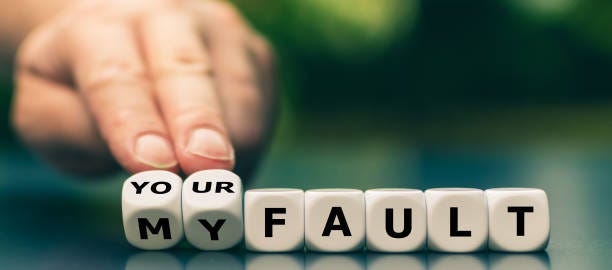Book Appointment Now
Why You Feel Guilty When You’re About to Leave an Abusive Relationship

When you’re about to leave that abusive relationship you’ve invested in, you will certainly feel guilty, and you will feel like you’re making a bad decision for even thinking about leaving. The guilt will make you question your decision, and you will end up staying as the feelings of guilt may be unbearable. You are now deeply convinced that the relationship can’t be saved, but that feeling of guilt or feeling like you’re doing something wrong will be lingering in the air. When you experience these feelings of guilt, you may feel paralyzed to go no contact or to break up with them. It’s a normal emotion to have, and in this article, I will explain why it happens so that you cannot guilt yourself further for feeling guilty.
Manipulation and Control
The first reason why you’ll be feeling guilty is because you’ve been manipulated by your partner to feel so. Over the course of the relationship, they’ve probably gaslighted you and bombarded you with various manipulative techniques, painting you as the one who’s always at fault in the relationship or as the one who ruined the relationship. Surprisingly, they may even claim that you made them change their behaviors. Their manipulation has convinced you to feel obliged and responsible for what happened in the relationship, making you believe you need to stay to sort out the mess. This guilt emanates from their voice and not your true voice.
Cultural or Religious Beliefs
Your cultural and religious beliefs may also contribute to feelings of guilt when you’re about to leave, as they may have conditioned you to always be by your husband’s or wife’s side, to avoid divorce, or to maintain your traditional family unit at all costs. Additionally, you might feel compelled to uphold vows made in church or to your in-laws and parents, often at the expense of your own well-being. When you’ve been heavily conditioned by these aspects, the guilt associated with leaving can be overwhelming, appearing as immersive external pressure to remain in that torturous environment. You may perceive the act of leaving the abusive relationship as fundamentally wrong from various standpoints, feeling unable to go against your deeply-held cultural or religious beliefs easily.
Fear of Consequences
You may also feel guilty because of the fear you have of your actions. You might be afraid that they will retaliate, stop paying child support, or that something negative will happen if you make that decision. The worry about the consequences of your actions, both for yourself and others, can contribute to feelings of guilt.
Sense of Responsibility
Guilt, in itself, is not a bad thing; at times, it shows you have the conscience to discern whether you’re making the wrong decision or not. It even indicates that you genuinely care, and some aspects of the guilt you feel may be because you sense responsibility for the well-being of your partner, as you still care for them. If your partner is experiencing mental health issues, you might feel a sense of guilt for leaving them in that state. Additionally, you may feel like you’re letting your children down by separating them from the other parent or from the family unit.
Conclusion
You will probably feel guilty for wanting to leave an abusive relationship, and that’s okay. It shows that you still have a conscience within you, but it doesn’t mean that what’s happening in the relationship is your fault. It’s not your fault that the relationship turned out abusive; your mind may try to convince you otherwise, but that’s not your true voice — it’s the voice of those who’ve betrayed you in the past.
Your true voice prioritizes your well-being, understands your responsibilities, and acknowledges that you did all you could to change the relationship for the better. However, you now recognize that in a one-sided relationship, your efforts will be futile without willingness from the other party to change. You understand that, at times, the only option left for your own healing is to leave.
Note from the Author
If you’re ready and you’d like my help with healing, finding peace in life and breaking free from these toxic patterns, then you can book a FREE BREAKTHROUGH CALL with me HERE. Happy healing 💙💙. Feel free to share and comment! Use this information with caution, it comes from my own thoughts & bias, experiences and research😊.







